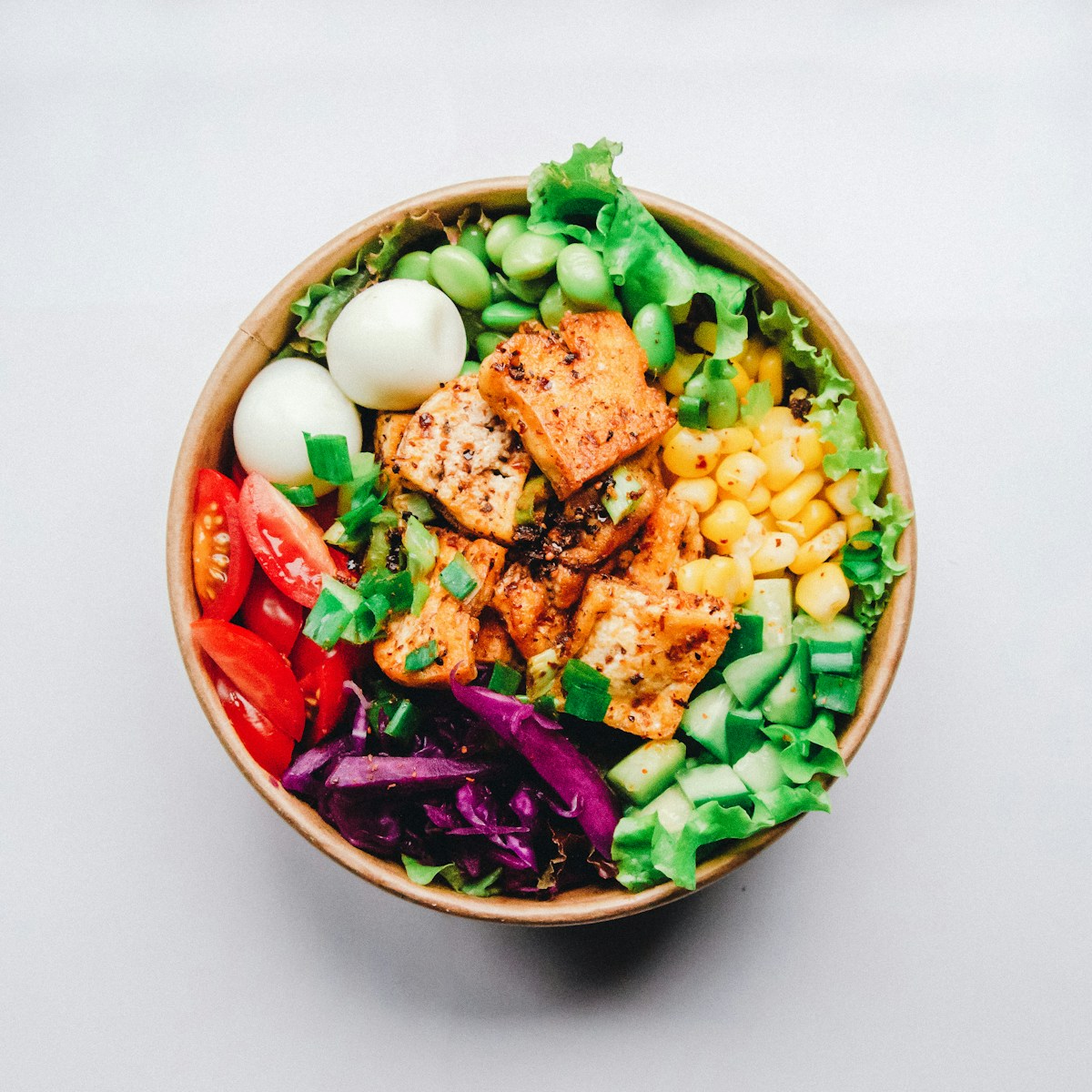Plant-Based Meals: Your Complete 30-Day Challenge Guide to Transformative Eating

What if 30 days could revolutionize your relationship with food, boost your energy levels, and potentially add years to your life? After guiding over 5,000 people through plant-based transitions and analyzing the latest nutritional science, I've created the ultimate guide to thriving—not just surviving—your plant-based journey.
The Science Behind Plant Power
Recent Stanford twin studies revealed something remarkable: participants on plant-based diets showed 10-15% reduction in LDL cholesterol, improved insulin sensitivity, and lost an average of 2kg more than their omnivore twins—in just 8 weeks. But the benefits extend far beyond weight loss.
Plant-based eating increases gut microbiome diversity by 40%, directly impacting mood, immunity, and even cognitive function. The fiber content—averaging 40g daily versus the standard 15g—acts as a prebiotic superfood, feeding beneficial bacteria that produce short-chain fatty acids, your body's anti-inflammatory powerhouses.
Week 1: Foundation Building
The first week isn't about perfection—it's about exploration. Start with "Meatless Mondays" and one plant-based meal daily. Your taste buds need time to adapt; it takes approximately 10-15 exposures to develop preference for new flavors.
Day 1-3 Meal Plan:
Breakfast: Overnight oats with chia seeds, berries, and almond butter (450 cal, 15g protein)
Lunch: Mediterranean chickpea power bowl with tahini dressing (550 cal, 18g protein)
Dinner: Lentil bolognese with whole grain pasta (600 cal, 22g protein)
Snacks: Hummus with vegetables, mixed nuts, fruit (300 cal, 8g protein)
Pro tip: Batch cook grains and legumes on Sunday. Having ready-to-eat basics prevents decision fatigue and takeout temptation.
Week 2: Protein Mastery
The protein panic is real but unfounded. Plant proteins, when varied, provide all essential amino acids. The key? Combine different sources throughout the day—not necessarily in the same meal.
Your Daily Protein Arsenal:
- Legumes: Lentils (18g/cup), chickpeas (15g/cup), black beans (15g/cup)
- Grains: Quinoa (8g/cup), oats (6g/cup), brown rice (5g/cup)
- Nuts/Seeds: Hemp seeds (10g/3tbsp), almonds (6g/oz), chia (5g/2tbsp)
- Vegetables: Edamame (17g/cup), Brussels sprouts (4g/cup), spinach (5g/cup cooked)
- Plant-based alternatives: Tofu (20g/cup), tempeh (31g/cup), seitan (25g/3oz)
"After two weeks plant-based, my energy levels skyrocketed. I no longer need afternoon coffee, and my workout recovery improved dramatically."
Marcus Johnson, Ultra-Marathon Runner
Week 3: Nutrient Optimization
By week three, focus shifts to micronutrient density. Certain nutrients require special attention in plant-based diets:
Critical Nutrients & Sources:
- B12: Supplement required (2.4mcg daily) or fortified foods
- Iron: Combine with vitamin C (lentils + bell peppers)
- Omega-3: Flax, chia, walnuts, algae supplement
- Calcium: Fortified plant milk, tahini, kale, tofu
- Vitamin D: Sunshine, fortified foods, or supplement
- Zinc: Pumpkin seeds, cashews, chickpeas
Game-changer tip: Add 1 tablespoon of ground flax to smoothies daily. It provides omega-3s, fiber, and lignans—compounds that balance hormones and may reduce cancer risk.
Week 4: Lifestyle Integration
The final week solidifies habits for long-term success. You've likely experienced increased energy, better digestion, and possibly weight loss. Now, make it sustainable.
Restaurant Navigation Guide:
- Mexican: Bean burritos, veggie fajitas, guacamole
- Italian: Pasta arrabiata, minestrone, bruschetta
- Asian: Vegetable sushi, pad thai (no egg), curry
- American: Veggie burgers, salads, baked potatoes
Social strategy: Eat before events, bring a dish to share, and focus on connection over food. Most people are curious, not critical—be prepared to share your positive experience.
10 Game-Changing Recipes
1. Protein-Packed Buddha Bowl
Quinoa, roasted chickpeas, tahini sauce, rainbow vegetables. 25g protein, 15g fiber.
2. Cashew Alfredo Pasta
Creamy, indulgent, 100% plants. Soaked cashews create dairy-free magic.
3. Lentil Walnut Bolognese
Umami-rich, satisfying, freezer-friendly. Better texture than meat versions.
4. Chocolate Avocado Mousse
Decadent dessert with hidden nutrition. No one guesses the secret ingredient.
5. Chickpea Tikka Masala
Restaurant-quality in 30 minutes. Coconut milk creates perfect creaminess.
6. Sweet Potato Black Bean Burgers
Hold together perfectly, grill-able, batch-freezable.
7. Overnight Chia Pudding Parfait
Prep once, eat all week. Omega-3s and protein for breakfast.
8. Miso Ginger Ramen
Comfort food upgraded. Tofu and edamame provide complete protein.
9. Buffalo Cauliflower Wings
Game day favorite. Crispy, spicy, addictive.
10. Green Goddess Smoothie Bowl
Instagram-worthy nutrition. Spinach, mango, hemp seeds, and toppings galore.
Troubleshooting Common Challenges
Digestive Adjustment:
Increased fiber can cause temporary bloating. Solution: Increase gradually, drink more water, and consider digestive enzymes initially.
Energy Dips:
Usually indicates insufficient calories. Plant foods are less calorie-dense—eat larger portions and include healthy fats.
Cravings:
Often signal nutrient needs. Cheese cravings? Try nutritional yeast. Meat cravings? Increase umami foods like mushrooms, miso, and smoked paprika.
Social Pressure:
Lead by example, not preaching. Your glowing skin and energy speak louder than arguments.
Budget-Friendly Shopping List
Plant-based eating can reduce grocery bills by 30% when done strategically:
Weekly Essentials ($40-50):
- Dried beans/lentils (bulk): $5
- Whole grains (brown rice, oats): $5
- Seasonal vegetables: $15
- Frozen fruits/vegetables: $8
- Plant milk: $3
- Tofu/tempeh: $5
- Nuts/seeds (bulk): $5
- Condiments/spices: $4
Money-saving tip: Buy spices from ethnic markets—often 75% cheaper than supermarkets. Invest in quality spices; they transform simple ingredients into gourmet meals.
Your 30-Day Transformation Timeline
Days 1-7: Taste adaptation, possible detox symptoms, increased bathroom visits
Days 8-14: Energy surge, better sleep, clearer skin begins
Days 15-21: Stable energy, reduced cravings, mental clarity
Days 22-30: New normal established, sustained energy, visible results
Research shows 66 days to form a habit, but 30 days creates momentum. Most participants continue beyond the challenge, not from obligation but preference.
Beyond the 30 Days
This isn't about perfection or labels. It's about adding more plants, discovering new flavors, and feeling your best. Whether you go fully plant-based or adopt "plant-forward" eating, every plant-based meal is a vote for your health and the planet.
The most successful participants treat this as an experiment, not a restriction. Stay curious, be patient with yourself, and remember—you're not giving up foods, you're gaining a whole new world of flavors, energy, and vitality.
Ready to Transform Your Plate?
Join our 30-Day Plant-Based Challenge with meal plans, shopping lists, and community support.